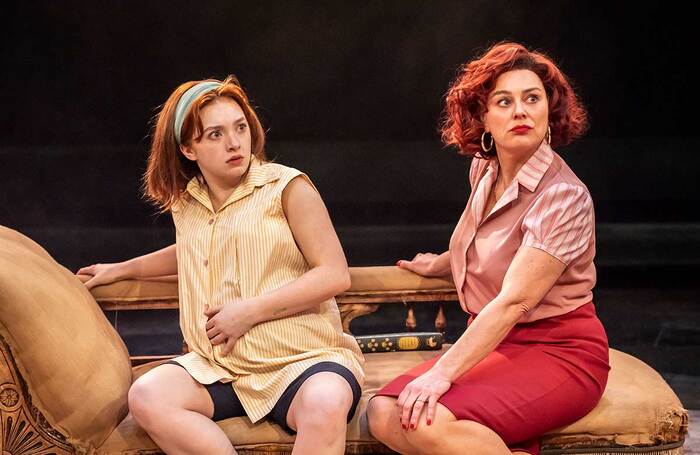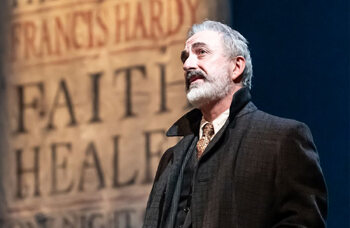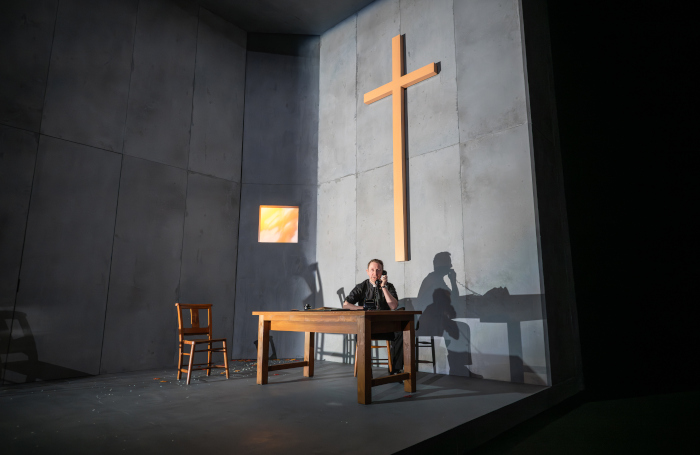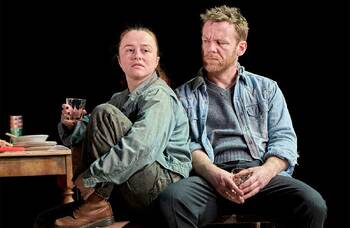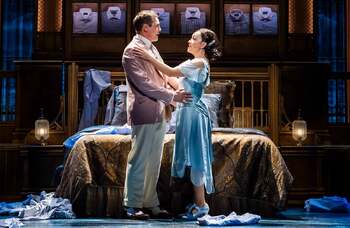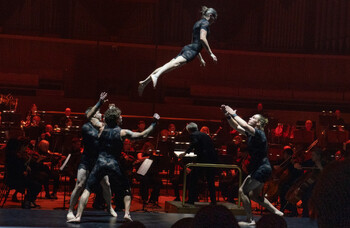Vivid and affecting revival of Shelagh Delaney’s groundbreaking play
When it was first performed at Theatre Royal Stratford East in 1958, Shelagh Delaney’s debut play was a real jolt to the system. The unflinchingly honest story of an itinerant Salford single mother and her pregnant teenage daughter – written when Delaney was still a teenager herself – opened theatregoers’ eyes to a hitherto unexplored side of British society and helped to usher in a whole wave of kitchen-sink dramas.
The question now is, 66 years on, whether it is still as vital and relevant. Happily, Emma Baggott’s production successfully nails the reality of the horribly dysfunctional mother-daughter relationship at its core, while also leaning into the dreamy magic realism in Delaney’s work. A jazz singer, Nishla Smith, performs standards – evocatively arranged and orchestrated by Alexandra Faye Braithwaite – that punctuate the scenes. The device of the singer observing, and sometimes duetting with the characters, most effectively in a stirring, closing rendition of Dirty Old Town, contributes to a woozily off-kilter atmosphere.
Continues...
The first half zips along with a breezy, devil-may-care confidence, before the story takes a darker turn in Act II, when schoolgirl Jo falls pregnant and the true damage of being brought up by a woman so ill-equipped for motherhood is revealed. As Jo, Rowan Robinson brims with confidence when flirting vampily with her mother’s latest squeeze Peter (a boorish and slippery Andrew Sheridan), but then looks like a scared, vulnerable little girl at the thought of being left alone. She comes into her own in the second half, as Jo’s determination not to be like her mother and her unwillingness to conform see her entering into a platonic relationship with her prim, kindly gay friend Geoffrey, played with sensitivity and a tragic wounded pride by David Moorst.
Robinson spars brilliantly with Jill Halfpenny as Jo’s flighty, self-absorbed, controlling mother Helen, with the pair delivering Delaney’s dryly funny, lyrical dialogue with palpable relish. Halfpenny inhabits the character of Helen totally, channelling another fictional Salford siren (one, like Delaney, also celebrated by Morrissey and The Smiths): Coronation Street’s iconic femme fatale Elsie Tanner, her distinctive Tyne and Wear tones successfully concealed beneath a convincing Mancunian accent.
Details that once would have been shocking now seem commonplace, although the characters’ casually intolerant attitudes to race and homosexuality feel even more disturbing. Designer Peter Butler’s imaginative but unobtrusive, period-perfect set and shabbily stylish costumes complete the effect of a production that breathes fresh life into a play that, six decades on, still has the power to connect.
More Reviews
More Reviews
Recommended for you
Most Read
Across The Stage this weekYour subscription helps ensure our journalism can continue
Invest in The Stage today with a subscription starting at just £7.99
